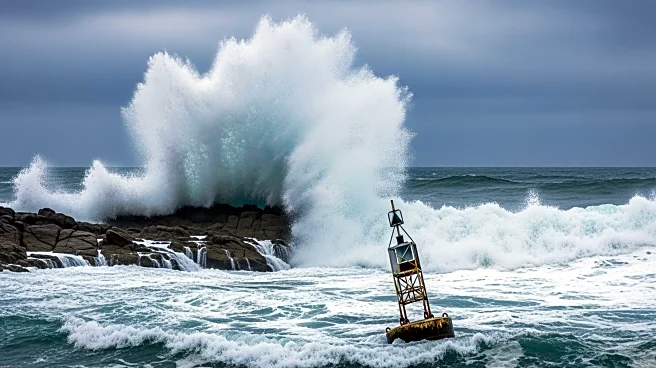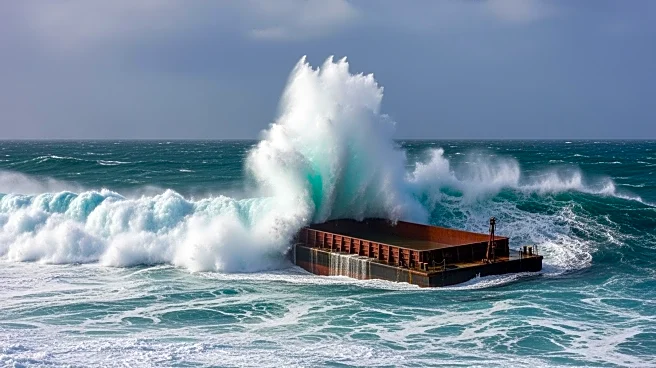What's Happening?
Norway's Green Party is advocating for a phaseout of oil and gas activities by 2040, following their electoral gains that doubled their seats to seven. The party demands an immediate halt to exploration and has identified specific fields for closure, including Statfjord and Brage. This push comes as the ruling Labour Party requires Green support to maintain a majority. Despite booming oil and gas investments, the industry faces risks of layoffs as major projects conclude and new orders dwindle. The Green Party's stance highlights the tension between Norway's economic reliance on fossil fuels and the global shift towards renewable energy.
Why It's Important?
The Green Party's push for an oil phaseout is significant for Norway's economy, which heavily relies on oil and gas exports. A transition to renewable energy could reshape the country's economic landscape, affecting jobs and revenue. The move aligns with global efforts to combat climate change but poses challenges for industries dependent on fossil fuels. The phaseout could lead to increased reliance on imports and necessitate rapid development of green energy projects to sustain economic growth.
What's Next?
Negotiations between the Green Party and the Labour Party will be crucial in determining the future of Norway's oil and gas sector. The government has pledged significant offshore wind capacity by 2040, but progress has been slow. The industry must adapt to declining petroleum output and explore new opportunities in renewable energy to mitigate job losses and economic impacts.
Beyond the Headlines
The phaseout could accelerate Norway's transition to a green economy, influencing global energy markets and environmental policies. The shift may also impact geopolitical dynamics, as Norway's reduced fossil fuel output could alter energy dependencies in Europe. The Green Party's influence could drive more aggressive climate policies and investments in sustainable technologies.










